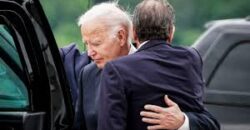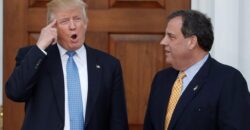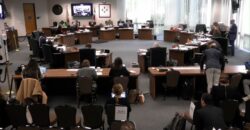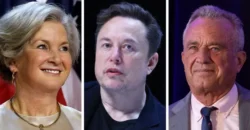Tulsi Gabbard, Donald Trump’s pick to lead the intelligence community, was briefly placed on a Transportation Security Administration list that prompts additional security screening before flights after her overseas travel patterns and foreign connections triggered a government algorithm earlier this year, three sources familiar with the matter told CNN.
Gabbard was quickly removed from the list, a little-known program called “Quiet Skies,” after going public with claims she had been added to a “secret terror watchlist.” A federal official familiar with the program told CNN there are specified criteria for removing or adding individuals and that no one is removed from the list because of public statements they make.
Gabbard has claimed she was put on the list because she had criticized then-presidential candidate Kamala Harris in an interview with Fox News — something two of the sources flatly denied had anything to do with it.
“The TSA placed me on the Quiet Skies domestic terror watchlist in what I can only describe as the ultimate betrayal,” she said in a post on X in September. “The Harris-Biden regime has now labeled me a domestic terror threat. Why? They see me as a threat to their power.”
The episode has raised eyebrows among security officials, who point to Gabbard’s history of unusual relationships overseas. As a member of Congress in 2017, she worked outside of official channels to travel to Syria to meet with President Bashar al-Assad.
CNN has reached out to Gabbard for comment.
The circumstances that led to Gabbard’s inclusion on Quiet Skies may be entirely benign, these sources said. But for a nominee for a top position — much less the director of national intelligence — to have been placed on a government watchlist of any kind is highly unusual, if not unprecedented, several US officials said.
Under normal circumstances, one official said, Gabbard would be forced to explain the underlying foreign travel or contacts in question during her background check.
But Trump has indicated that he may eschew the normal background check process for his top nominees, raising questions about what, if anything, Gabbard will be required to disclose — or whether national security officials will even be given an opportunity to assess if Gabbard’s conduct posed any risk.
The Quiet Skies algorithm looks at travel patterns, foreign connections and other data in a variety of government holdings, and if triggered, leads to additional security screening at the airport by Air Marshals. But it is not associated with the FBI’s terrorist watch list. Security officials from multiple agencies told CNN that the program is known inside thegovernment for having far laxer standards for inclusion.
TSA would not confirm Gabbard was on the list when asked by CNN but noted the program “is not a terrorist watchlist.”
“TSA uses multi-layered security processes to protect the nation’s transportation systems and ensure freedom of movement for people and commerce,” the agency said in a statement. “TSA’s Quiet Skies program is a risk-based, automated approach to transportation security, to include identifying potential risks and applying enhanced security measures.”
The statement continued: “TSA’s Quiet Skies program is not a terrorist watchlist. It leverages USG intelligence information and databases to apply screening measures.”
“It’s a screening mechanism,” CNN national security analyst Carrie Cordero said of the program, which is “based on different indicators that are assembled and flags an individual for further security screening before they get on a domestic flight.”
That screening, Cordero said, is to make sure “that they are a safe person to get on an airplane.”
The episode adds another specter of uncertainty to a nominee whose history of unorthodox foreign policy positions — in particular public statements that critics say echo Russian talking points — has already left some GOP senators profoundly uncomfortable.









